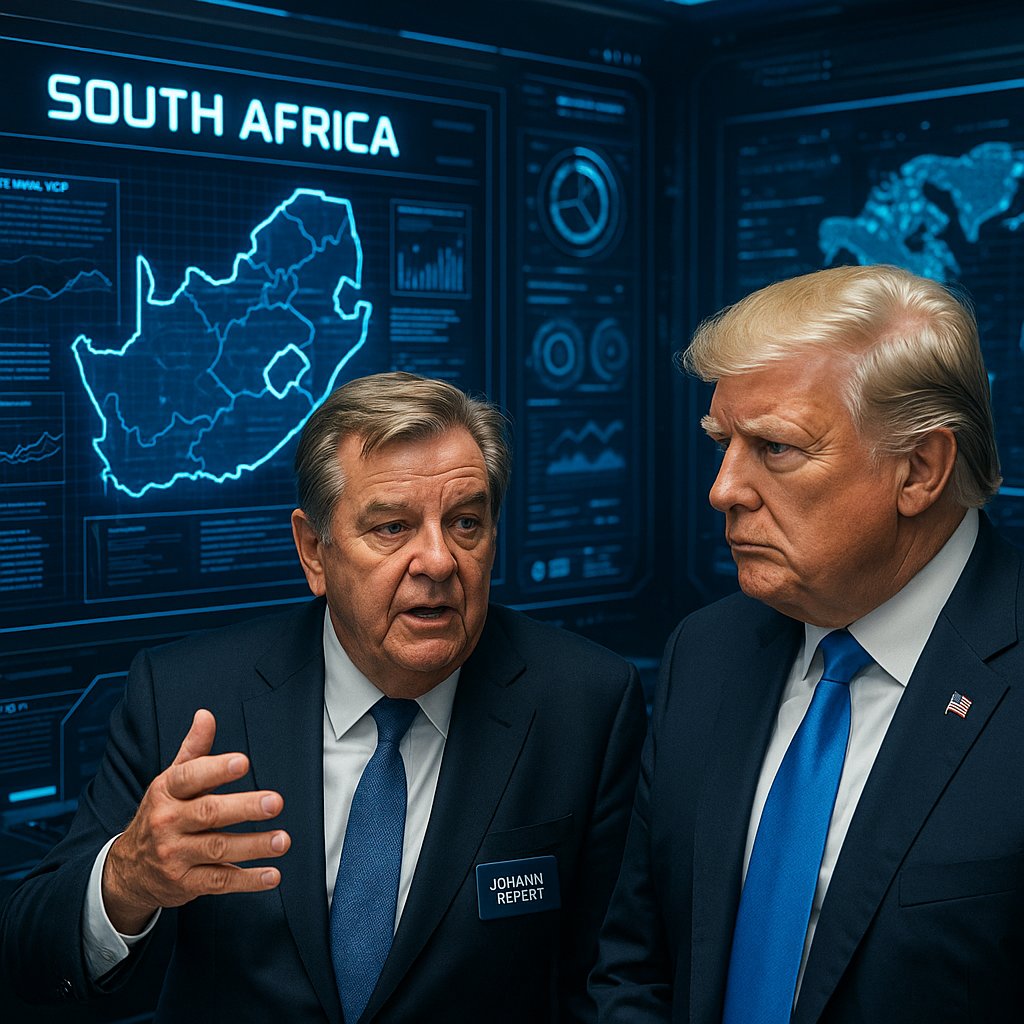Image created by AI
Gayton McKenzie Commends Johann Rupert for Debunking 'White Genocide' Claims in U.S. White House Visit
In a recent diplomatic visit that garnered significant attention, South African businessman Johann Rupert stood out not only for his presence but for his strong words against U.S. President Donald Trump's controversial claims about "white genocide" in South Africa. This White House visit on May 21, as part of President Cyril Ramaphosa's delegation, included notable figures such as golfers Ernie Els and Retief Goosen, highlighting the versatile representation from South Africa.
Gayton McKenzie, South Africa's Minister of Sport, Art, and Culture, publicly commended Rupert on social media, marking a drastic turnaround from his previous criticisms of the billionaire. "Rupert is not who we think he is, he is a true Patriot. He loves this country, and I wanna be the first to admit that I was wrong about him," McKenzie posted.
Historically, McKenzie has been a vocal critic of Rupert, accusing him of economic manipulation and undue influence. In various posts dating back to 2017, McKenzie has compared Rupert unfavorably with other controversial figures in South African politics and accused him of economic crimes. However, his recent posts paint a different picture, focusing on Rupert's defense of South Africa during a time when international perceptions could be swayed by misinformation.
During the meeting, while Trump persisted with his claims about the targeted oppression of white farmers in South Africa, Rupert countered this narrative with facts and statistics, emphasizing that the issue of violence was not exclusive to any single demographic but a widespread concern exacerbated by unemployment and societal issues. Rupert's pointed explanation about the Cape Flats, an area troubled by gang violence and high crime rates, further highlighted the broader nuances of the issue.
This incident has not only reshaped McKenzie's view of Rupert but also emphasized the complexity and sensitivity of South Africa's socio-political landscape. It illustrates the importance of accurate representation on global platforms, especially against sweeping and potentially harmful allegations. Furthermore, Rupert's role in this diplomatic mission may suggest a potential shift in how South African leaders and businessmen can collaborate for national and international advocacy.
Johann Rupert's candid discussion in the White House represents a vital moment of advocacy for South Africa, showing how influential voices from within the country can play a crucial role in addressing and correcting misconceptions on the world stage.










